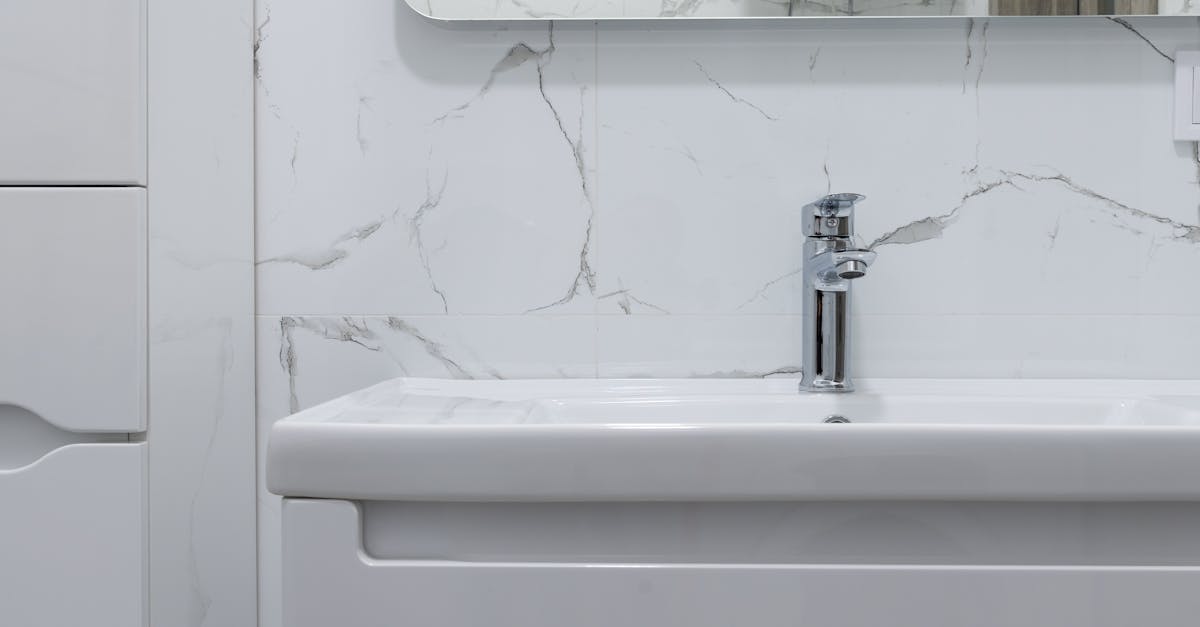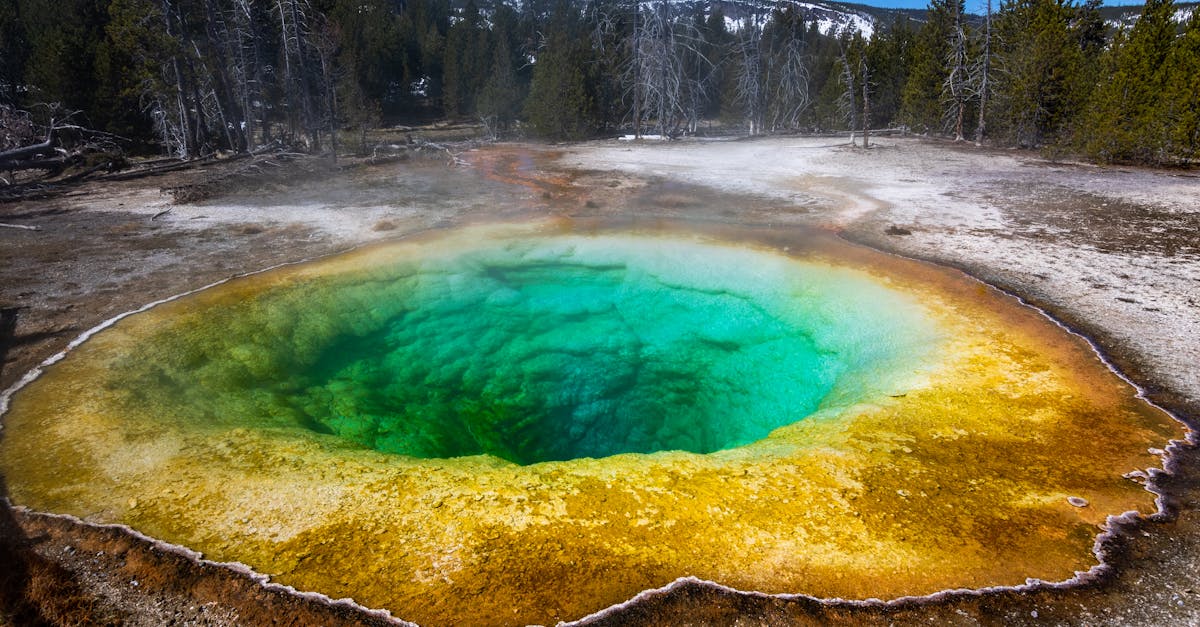
Table Of Contents
Examining the Pressure Relief Valve
One vital aspect of assessing the functionality of a hot water system is examining the pressure relief valve. This valve serves as a crucial safety feature, releasing excess pressure within the system to prevent potential hazards. Begin by locating the pressure relief valve on the water heater. It is often a brass or copper valve found on the side of the unit, connected to a discharge pipe. Check that the discharge pipe leads to the floor and is clear of obstructions to allow safe water release if needed.
To ensure the pressure relief valve is in working order, carefully lift and lower the valve's lever. You should observe water flowing out of the discharge pipe as you lift the lever. If no water is released or only a small amount trickles out, this could indicate a problem with the valve. Additionally, if water continues to flow even after the lever is lowered, the valve may be faulty. Remember, performing regular checks on components like the pressure relief valve can help identify potential issues early on and prevent the need for Hot Water System Replacement.
Testing for Proper Functioning
Testing for the proper functioning of a hot water system involves a few key steps to ensure that it is working efficiently. Start by checking the temperature of the hot water coming out of the taps in your home. If the water is not reaching the desired temperature or is fluctuating, there may be an issue with the system that needs to be addressed promptly. Next, test the pressure of the water flow from the taps. Inadequate pressure can indicate a problem within the system that requires attention. If you notice any unusual noises coming from the system while it is running, this could also be a sign of underlying issues that need to be investigated.
One crucial aspect of testing for proper functioning is to evaluate the consistency of hot water supply throughout your home. If certain areas are receiving limited or no hot water, there may be a blockage or malfunction within the system that needs to be rectified immediately. Keep a close eye on your energy bills as well – a sudden spike in costs could be a result of an inefficient hot water system. By conducting regular checks and promptly addressing any issues that arise, you can ensure the longevity of your hot water system and avoid unexpected expenses related to Hot Water System Replacement.
Inspecting the Water Heater's Pilot Light
Inspecting the water heater's pilot light is crucial for ensuring the efficient functioning of the hot water system. Start by locating the pilot light within the water heater. It is usually positioned near the bottom of the unit. Check to see if the flame is a steady blue colour. A flickering yellow flame can indicate a problem with the combustion process, which may require attention to prevent further issues.
If the pilot light is not igniting at all, it could be a sign of a more significant problem within the water heater. In such cases, it is advisable to seek professional assistance to diagnose and rectify the issue promptly. Ignoring problems with the pilot light can lead to more extensive issues that may result in the need for Hot Water System Replacement, which can be costly and inconvenient.
Troubleshooting Lighting Issues
When facing issues with the pilot light on your hot water system, it is essential to troubleshoot the problem effectively. Begin by checking for any obstructions in the pilot opening or burner. Ensure that the area is clean and free from any debris. If the pilot light continues to go out after relighting multiple times, there may be a more significant issue at hand.
If troubleshooting the pilot light does not resolve the problem, it might be necessary to seek professional assistance. Faulty thermocouples or gas control valves could be causing the pilot light to go out repeatedly. In some cases, the cost of repairs may outweigh the benefits, prompting consideration for Hot Water System Replacement.
Evaluating the Age of the Hot Water System
When evaluating the age of your hot water system, it's essential to consider its lifespan. Most traditional hot water systems have a lifespan of around 8 to 12 years. If your system is approaching or exceeding this timeframe, it may be more prone to issues and inefficiencies. Hot water systems that are older than 12 years are considered to be at the end of their lifespan and may require more frequent repairs. It's important to keep this timeline in mind when assessing the performance of your system. Regular maintenance and servicing can extend the life of your hot water system, but eventually, Hot Water System Replacement may be necessary to ensure reliable hot water supply in your home.
Age is one of the critical factors to consider when determining the need for Hot Water System Replacement. As hot water systems age, they become less energy-efficient and may start to experience more frequent breakdowns. Older systems are also more susceptible to leaks and other issues that can lead to water damage in your home. If your hot water system is over 12 years old and you are experiencing frequent problems or noticing a drop in performance, it may be time to start considering a replacement. Investing in a new, energy-efficient hot water system can not only improve the reliability of your hot water supply but also help you save on energy costs in the long run.
Determining if Replacement is Needed
Determining if a hot water system replacement is necessary can depend on various factors. One critical aspect to consider is the age of the unit. Generally, hot water systems have a lifespan of around 10 to 15 years. If your system is reaching or has surpassed this timeframe, it may be prudent to start thinking about a replacement. As hot water systems age, they become less efficient, leading to increased energy consumption and a higher likelihood of breakdowns. Therefore, if your hot water system is showing signs of wear and tear and is nearing the end of its expected lifespan, it might be time to consider investing in a new unit.
Another indicator that a hot water system replacement may be required is frequent and costly repairs. If you find yourself constantly needing to repair your system or the repair costs are becoming substantial, it could be more financially viable to opt for a new hot water system. Continuously repairing an old system can end up costing you more in the long run than investing in a new, energy-efficient model. Additionally, a modern hot water system will likely offer improved energy efficiency, resulting in long-term savings on your utility bills. As such, evaluating the frequency and cost of repairs can help determine whether a hot water system replacement is the most practical choice for your household.
FAQS
How can I tell if my hot water system is not working properly?
There are various signs to look out for, such as a lack of hot water, strange noises coming from the system, or water leaks around the unit.
What should I do if my hot water system is not producing hot water?
If your hot water system is not producing hot water, you should check the pressure relief valve, test the functioning of the system, and inspect the pilot light to troubleshoot any potential issues.
How can I determine if my hot water system needs to be replaced?
To determine if your hot water system needs to be replaced, consider factors such as the age of the system, the frequency of repairs needed, and the efficiency of the unit in providing hot water.
Is it possible to troubleshoot lighting issues with a hot water system on my own?
Yes, you can troubleshoot lighting issues with your hot water system on your own by following the manufacturer's instructions, checking for gas supply, and ensuring the pilot light is lit properly.
When should I consider replacing my hot water system instead of repairing it?
You should consider replacing your hot water system instead of repairing it when the unit is old, requires frequent repairs, or is no longer energy-efficient in providing hot water for your household.





























